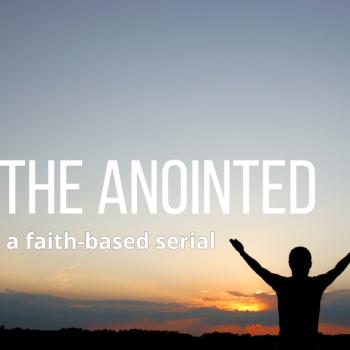
This article explores the evangelical movement’s necessary transformation from a phase of youthful certainty to a mature state of ‘limping courage,’ a term inspired by Jacob’s transformative struggle with God. It advocates for a form of faith characterized by vulnerability, honest acknowledgment of doubt and weakness, and a humble yet brave stance in the face of life’s paradoxes and uncertainties.
Revisiting Evangelical Origins and the Need for Maturation
In the initial four articles about the evangelical movement and its trauma, we examined the origins of the evangelical movement as a counter-reaction to liberal theology in the United States. As a counter-movement, it has become stuck in the youth phase. I’ve argued that we need to progress to the adult phase, or as the Apostle John writes in his second letter, to the phase of fathers and mothers.
Jacob’s Transformation: A Blueprint for Evangelical Maturity
The patriarch Jacob can assist our evangelical movement in this regard. After all, he had to deal with his trauma concerning Esau, and after a prolonged fight with God at night, Jacob transitions from the youth phase to the father phase, becoming Israel.

Embracing Divine Wounds: The Evangelical Path to Authentic Faith
In the early morning, God strikes Jacob on the hip, causing him to go through life limping. The robust youth becomes the faltering father. Part of the evangelical movement’s maturation lies in learning to wobble. This requires courage. Are we open to God striking us, as a movement, on the hip? I believe God can only do this if we give Him permission. But who wants a divine wound?
Paul’s Thorn: Strength in Weakness for Modern Believers
Paul writes about the thorn God gave him. This thorn wasn’t present in his childhood phase when he had just converted and was lowered down the wall in a basket. Reading his letters, it seems that this wound is also absent during his youth phase when he travels to establish all the congregations.
Later, in the father phase, God strikes him on the hip.
Later, in the father phase, God strikes him on the hip. He asks God three times to remove this thorn, this wound, this wobbling from him. But God’s response is: “My grace is sufficient for you, for my power is made perfect in weakness.”
The Paradox of Spiritual Growth: Embracing Life’s Contradictions
Here you encounter a paradox that stands as a symbol for the increasing number of paradoxes in the phase of the fathers. Living with paradoxes requires courage:
In the youth phase, you are strong from the power God has given you. That’s nice. That’s good.
In the father phase, you are strong because of the weakness God has given you. This is also good, and yet so different.
In the youth phase, fatherhood with all its paradoxes seems mysterious, perhaps even frightening.
You know, if you’re a Christian in a child phase and you’ve just come to faith, you can’t imagine what it will be like to be a youth in faith. As humans, we find it very challenging to empathize with a phase or level further than the one we’re currently in. In the youth phase, fatherhood with all its paradoxes seems mysterious, perhaps even frightening. How comforting it is to stand firmly on the foundation and feel strong in the Lord. Again, this is very good. Every phase is good!

Embracing Divine Vulnerability: The Evangelical Journey from Strength to Limping Courage
Jacob was wounded by God. It was as if he got to exchange his wound for a divine one. He will spend the rest of his life limping. Do we, as an evangelical movement, dare to exchange our wound and our trauma with God for a blow on the hip or a thorn in our flesh?
Do we dare to start wobbling? Are we willing to let go of certain certainties, like our strength? How will we shape the collective following of Jesus in a country where ‘truth is nothing more than someone else’s opinion, and the only certainty you have turns out to be uncertainty? A country full of nuance, doubt, wonder, and limping courage?’
Do we, as an evangelical movement, dare to exchange our wound and our trauma with God for a blow on the hip or a thorn in our flesh?
Can God be found here? Could we live here? Can you breathe underwater? Can you believe when uncertainty is not just around you, but sometimes even a part of you?
‘Wankelmoed’: Finding Courage Amidst Uncertainty
Of course, the answer to these questions is a resounding ‘yes.’ Especially if we dare to be a movement that can shape the concept of ‘wankelmoed.’ Wankelmoed? You may be wondering, “Wankelmoed?”
Wankelmoed is a Dutch term. The Germans call it ‘wankelmut’. I don’t think there’s an English equivalent for it. “Wankelmoed,” can be understood as a kind of courage that exists in the face of uncertainty or instability.
This kind of courage is not about being fearless, but rather about moving forward despite fear and uncertainty.
It refers to having the bravery to proceed or take action even when one is not confident or is experiencing doubt. This kind of courage is not about being fearless, but rather about moving forward despite fear and uncertainty. It’s about acknowledging one’s fears or doubts and yet deciding to continue, which often is pertinent in situations where outcomes are unclear or risks are evident.
Limping Courage: The Evangelical’s New Strength
Looking at the life story of Jacob, you could call it ‘limping courage’. Jacob, who, after wrestling with God, was left with a limp but also with a renewed spirit and a new name, Israel. In this light, “limping courage” is the bravery and determination one carries forward despite the wounds, struggles, or vulnerabilities one has experienced.

Limping courage is actually believing amidst doubt, despite doubt, right through doubt.
It’s not about moving forward with full confidence and strength, but rather about continuing the journey while acknowledging one’s weaknesses and the challenges that have been faced. This kind of courage speaks to the human experience of persisting even when we’re hurt or uncertain, continuing to engage with life and its challenges even when we’ve been fundamentally changed by our experiences.
- Limping courage is bravely continuing after God has struck you on the hip.
- Limping courage is where strength and vulnerability meet.
- Limping courage is daring to believe, even when you are not sure.
- Limping courage is daring to doubt and to express that.
- Limping courage is being able to ask yourself and others difficult questions.
- Limping courage is taking a step back to create space for the Other.
- Limping courage is vulnerably admitting your limitations and your mistakes.
- Limping courage is standing upright without overextending yourself.
- Limping courage makes you credible.
- Limping courage allows for openness and wonder.
I believe limping courage is the only way forward for the Evangelical Movement. This statement causes a stir among some evangelicals. They think that I mean doubt is the only way forward. But that’s not what I’m saying. Limping courage is clearly not the same as doubting. Limping courage is actually believing amidst doubt, despite doubt, right through doubt. Perhaps it’s believing with a little more room for the otherness of the other.
Limping courage also encompasses a form of humility, realizing that you are broken amidst a broken world.
Limping courage also encompasses a form of humility, realizing that you are broken amidst a broken world. You perhaps realize that you know God well, but not completely. That you might have insight into His will, but not as confidently as before. Is this a loss? Or does it offer richness instead?
Jacob’s Legacy: Finding God in the Midst of Brokenness
What did it do to Jacob? Jacob became a father, a true patriarch, after his wrestling experience. With a new name, ‘Israel,’ he reconciled with Esau. Israel settled in the promised land. Ah, finally peace…
Not a life without sorrow, trauma, and pain. But amidst all the brokenness, there is always God’s presence.
Until his beloved wife Rachel died, his daughter Tamar was raped, his sons took terrible revenge, Reuben slept with his concubine, Joseph disappeared into Egypt, a famine occurred, and he had to die in Egypt.

Not a life without sorrow, trauma, and pain. But amidst all the brokenness, there is always God’s presence. When Jacob died, Joseph’s brothers were terrified. “Now Joseph will avenge himself on us for all the evil we have done to him,” they thought. But Joseph’s answer was: “You intended to harm me, but God intended it for good, to accomplish what is now being done, the saving of many lives.”
God is present amidst the brokenness.
Joseph’s understanding transcends the youth phase. It’s a father’s understanding. God is present amidst the brokenness. God turns things around. What people intend for evil, God intends for good. Could we, as an evangelical movement, also learn to live and believe with such understanding?
Embracing Vulnerability: The Future of Evangelical Communities
What if our evangelicalism would no longer come from a place of strength, but from a place of vulnerability? What if we would witness not from certainty but from wonder? What if we would serve not from abundance but from scarcity? What if our faith communities would not be places where everyone is successful and happy, but where everyone could be honest about their brokenness and still experience God’s presence?
Limping Courage: The Path to Authentic Faith and Community
Isn’t that what the world is waiting for? Real people, honest stories, genuine brokenness, authentic faith, and the presence of God who turns things around?
May we have the limping courage to walk this path.
This article is the last in a five-part series.
Read the other parts of this serie on the Evangelical movement:
Part 1: Evangelicalism’s High School Traits: Can Trauma Be the Key?
Part 2: Evangelicals In Crisis: Why We Struggle To Be A Mature Movement
Part 3: Please God Strike Evangelicalism On It’s Hip
Part 4: Only By Facing Our Trauma Can The Evangelical Movement Reach Real Fatherhood
Have you read some my other articles:
- Three Reasons Why Bible-Believing Christians Don’t Really Exist
- Jesus Dealing With Letters of Complaint: A Parable On Modern Church Leadership
Matt Vlaardingerbroek, a former seasoned church planter and pastor in Holland’s inner cities, brings Bible stories to life through ventriloquism and magic. He’s authored three books, and founded www.creativekidswork.com, providing over 1,500 innovative Sunday school activities worldwide.

















